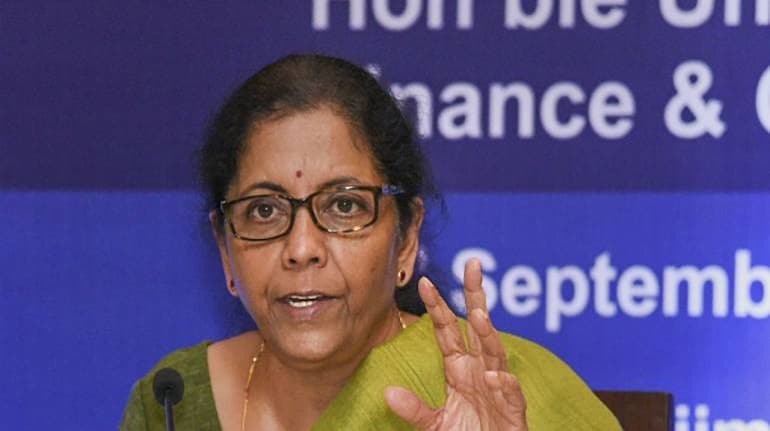



India's fiscal deficit gap is set to increase by at least 70 basis points to 4 percent of the gross domestic product (GDP) for 2019-20 after Finance Minister Nirmala Sitharaman announced a cut in corporate tax rates on September 20.
In a bid to revive growth and get the economy back on track, Sitharaman said that domestic companies will have the option to pay income tax at 22 percent if they don't avail any exemptions or incentives from 2019-20.
The minister also announced that the revenue foregone for the reduction in corporate tax rate would be Rs 1.45 lakh crore per annum - roughly about 19 percent of the total corporate tax target for the current year.
The move may result in an increase in India's fiscal deficit from the budgeted 3.3 percent of GDP to 4 percent.
However, the expected pick up in growth may help in meeting the fiscal deficit gap.
"It's not such a linear equation that there is a 70 bps impact and therefore fiscal deficit will rise by that much. There are multi-faceted outcomes of this decision by the government," said Shubhada Rao, Chief Economist at YES BANK.
A report published by YES BANK said that the tax changes could cost the exchequer as much as Rs 1,450 billion (0.7 percent of GDP) in terms of revenue foregone.
Adjusting for the tax devolution for states (who will now receive lower transfer of center’s tax revenue as against budget estimates), the net impact is likely to be lower at Rs 950 billion (0.5 percent of GDP).
"There is a possibility that the actual impact could be somewhat lower than this (say around 0.3-0.4 percent of GDP) if the Laffer Curve impact starts kicking in resulting in better compliance and widening of the tax base," the report said.
The report pegs the 2019-20 fiscal deficit for the central government to be somewhere around 3.8 percent of GDP as against the target of 3.3 percent.
A senior official with the revenue department said that the cut in the tax rate will make the tax collection rate for the current financial year more realistic. "The required growth rate would come down to 5 percent, which is what it is currently," the official said.
Direct tax growth rate till mid-September has been 5 per cent. To achieve the budget targets, it needed to grow by about 27 percent for the rest of the months of FY20.
"The government's revenues would take a hit in future years, although the expected, albeit back-ended, pickup in economic activity as a consequence of this tax cut may infuse some buoyancy into direct and indirect tax collections," said Aditi Nayar, principal economist, ICRA.
The cut in the corporate tax would also mean that Centre's devolution to states would decrease as well. In a report ICRA said that it expects a sizeable expenditure reduction or deferral is required to avoid substantial fiscal slippage at the state government level.
"Unless the corporation tax cut generates a broad-based buoyancy in tax collections over the medium term, the state governments’ fiscal health may come under considerable stress, especially if the duration of compensation related to GST losses is not increased beyond the current five-year period," the report said.
However, some believe that the positive spillovers anticipated from the tax cut will free up some money for corporates to bring in investments, thereby leading to capital formation.
"In combination, having saved on their tax burden, corporates could explore lowering of the prices of their goods and services. If that happens, there could be some improvement in demand and therefore growth. An uptick in demand will compensate for the price negative impact," said Rao.
Rao also said that the government's ways of providing growth support would lead to better tax collections, better disinvestment proceeds and all of those together would bridge the fiscal gap.
Discover the latest Business News, Sensex, and Nifty updates. Obtain Personal Finance insights, tax queries, and expert opinions on Moneycontrol or download the Moneycontrol App to stay updated!
Find the best of Al News in one place, specially curated for you every weekend.
Stay on top of the latest tech trends and biggest startup news.